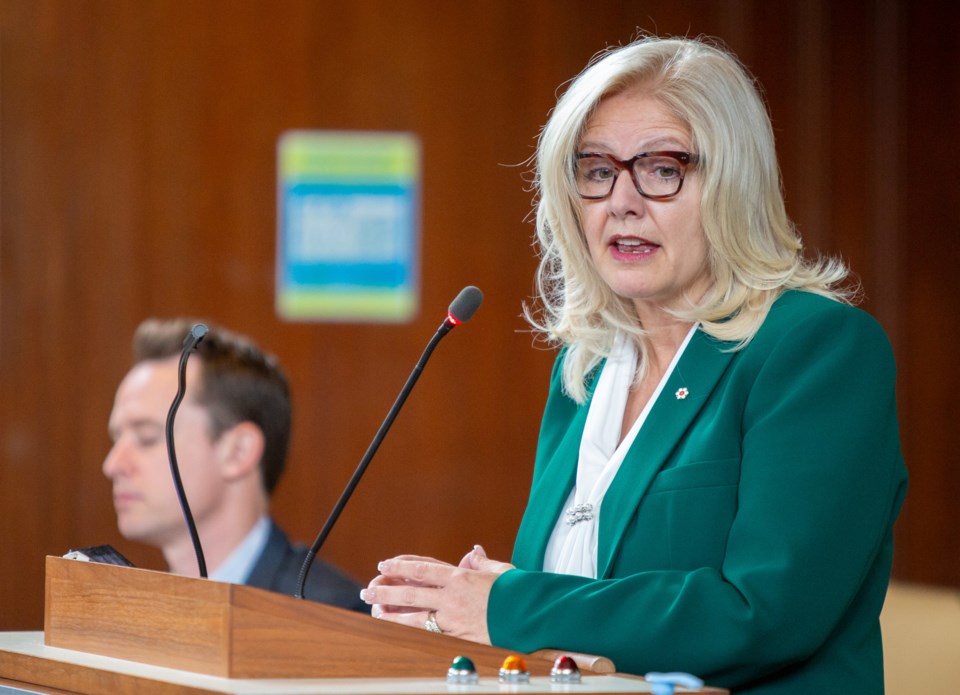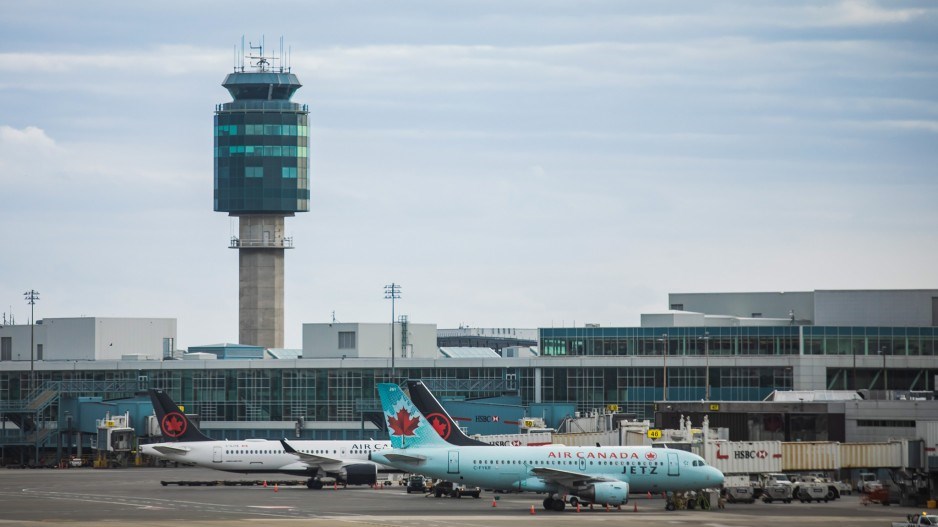The Vancouver International Airport has seen a rebound in airline passengers since the pandemic was declared in 2020 but reduced international travel — particularly from China — is preventing the airport from eclipsing its best traffic year of 2019.
Recent data from the airport shows 2019 was a record year, with 26.3 million passengers travelling through the airport, or YVR as it’s also known. Those numbers dropped to 7.3 million in 2020 and seven million in 2021, before increasing to 19 million to end 2022.
The first four months of this year saw passenger traffic reach 7.3 million, which the airport’s president and CEO Tamara Vrooman said is being driven by travel within Canada, with 3.6 million people either landing or departing from the airport.
“For domestic [flights], we’re actually higher on many days than we were pre-pandemic,” Vrooman told Glacier Media Wednesday after delivering an update to Vancouver city council on the airport.
“I think it's a combination of seeing friends and family, and we've seen a lot more movement of students who are not international students, because we don't have as many international students coming in through China. And we're seeing domestic tourism being seen as safe and [Canada] a good place to book travel.”

Tamara Vrooman, president and CEO of Vancouver International Airport, at Vancouver city hall Wednesday. Photo Mike Howell
'Geopolitical factors'
While air travel to and from the United States is stable — with the cruise ship season connected to that stability — Vrooman said the drop in passenger traffic from China is evident. In 2019, more than 4.5 million of 7.2 million international passengers recorded at the airport were either travelling to or arriving from Asia-Pacific countries.
That number fell to 1.8 million Asia-Pacific travellers in 2022.
In 2019, a total of eight Chinese airlines operated out of the airport. That’s now down to two, said Vrooman, noting the eight airlines serving YVR at the time was more than any other airport in North America.
“Since there's been a change due to the pandemic, but also, frankly, to geopolitical factors, we don't have that Chinese traffic, we don't have those carriers, and I don't think we're going to have that traffic back [for some time],” she said.
At the same time, Vrooman added, Air Canada’s announcement June 13 that it will begin non-stop service in April 2024 between YVR and Singapore Changi Airport is “good news.” She also mentioned increased frequency of travel to Japan, Korea and a new service to Bangkok.
“It just takes time,” she said for Asia-Pacific passenger traffic to return to pre-pandemic levels. “The routes just didn't come back in the same way that they left, largely because of the change in Chinese traffic.”
The pandemic also had an effect on cargo delivered by plane, with YVR data showing 304,078 tonnes of cargo moved in 2019 compared to 240,895 in 2020, 273,049 in 2021 and 302,573 to end 2022.
Amazon Air
Vrooman told council in her presentation that Amazon Air is now the single largest airline in the world, saying “we've seen permanent shifts in what moves via air versus what moves via ground rail or marine.”
But much of the cargo that arrives at the airport has another destination.
“You may not be aware that 50 per cent of every air freight bill is actually ground transportation, which makes sense because of course the plane doesn't pick it up at your house and deliver it to your house,” said Vrooman, noting the airport also committed to a $150-million expansion of its cargo operations.
“A lot of it has to do with pavement and increasing access for aircraft to facilities that are already there, but that investment alone will generate over $250 billion in domestic and international trade over the 20-year life of that investment.”
Vrooman took questions from councillors about how the airport, which is located below sea level, is responding to climate change. She acknowledged the airport is a fossil fuel-driven industry but that it was important to “decarbonize” as growth occurs.
“We are the first airport in North America to make a commitment to be net zero by 2030,” she said. “I'm very confident we will meet that goal; we're already well on our way.”




